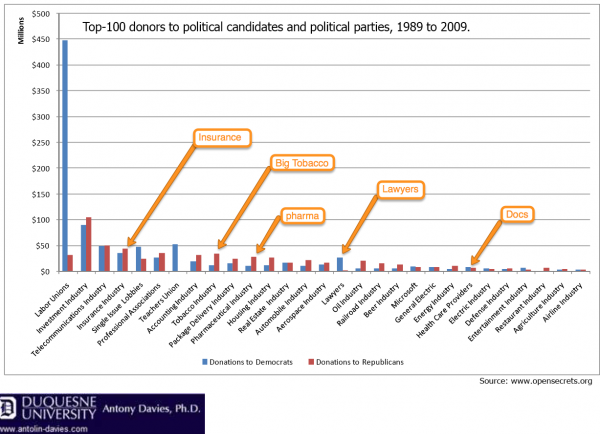September 23rd, 2011 by BarbaraFicarraRN in Opinion
No Comments »

 In a recent Harvard Business Review Blog, David Armano writes about the six pillars of influence that lead to measurably favorable outcomes.
In a recent Harvard Business Review Blog, David Armano writes about the six pillars of influence that lead to measurably favorable outcomes.
To achieve measurably better health, the pillars Armano explains can certainly be adopted.
He notes how the “social web can amplify signals, influence behavior and lead to action.”
Social networking has changed the landscape in health care. Technology has paved the way for instant communication and feedback.
While some companies continue to question the value of social media networking, debating whether or not they should be on Twitter or Facebook, others have superseded the hesitation, and are presently into the next phase of social networking. Read more »
*This blog post was originally published at Health in 30*
September 23rd, 2011 by BobDoherty in Health Policy, Opinion
No Comments »

Many physicians, and especially primary care physicians, aren’t happy campers. Why should they be? They feel disrespected, overworked, over-managed, and underpaid. They tell me they wouldn’t advise their children to go into medicine. Some feel that physicians are singularly beset upon. “Our government acts toward the medical profession in an abusive fashion. No other industry or profession is humiliated in this way,” writes RyanJo, a frequent commentator to this blog.
I can appreciate why many physicians are upset. They’ve had a decade where the Medicare SGR formula repeatedly has threatened to cut their fees, only to have Congress enact last minute reprieves that replace the cut with a small token increase that has not kept pace with their costs. Last year, Congress actually allowed the cut to go into effect and then retroactively restored it, creating havoc in physicians’ offices during the four weeks when they weren’t being paid. Like Charlie Brown and Lucy’s football, they are told each year by their members of Congress that that “this will be the year when the SGR will finally get repealed, really, for sure, we promise, this time will be different”–only to see it pulled away at the last minute.
In the meantime, they are constantly hounded to be more accountable for the care they deliver, to fill out just another form, to document their encounters, to get Read more »
*This blog post was originally published at The ACP Advocate Blog by Bob Doherty*
September 16th, 2011 by BobDoherty in Health Policy, Opinion
No Comments »

Graduate Medical Education has for the most part escaped big budget cuts in the past, mainly because powerful lawmakers have aligned to protect funding for teaching hospitals in their own states and districts. Plus, the Association of American Medical Colleges, the American College of Physicians, hospital organizations, and many others long have made funding for GME a top legislative priority.
GME, though, could be on the chopping block as Congress’s new “Super Committee” comes up with recommendations to reduce the deficit by at least $1.2 trillion over the next decade. A report from the Congressional Budget Office of options to reduce the deficit to suggests that $69.4 billion could be saved over the next decade by consolidating and reducing GME payments. Earlier this year, the bipartisan Fiscal Commission on Fiscal Responsibility and Reform also proposed trimming GME payments.
How then should those who believe that GME is a public good respond? One way is to circle the wagons and just fight like heck to stop the cuts. But that raises a basic question: is GME so sacrosanct that there shouldn’t be any discussion of its value and whether the current financing structure is effective and sustainable?
Another approach, the one taken by the ACP in a position paper released last week, is to Read more »
*This blog post was originally published at The ACP Advocate Blog by Bob Doherty*
September 10th, 2011 by GruntDoc in Health Policy, Research
3 Comments »

Why don’t docs get more of what they want in DC? There’s a quite instructive graph in a blog post from NRO last week (talking about Union campaign donations), but I found this one to be very instructive, and have added labels so the point cannot be missed:

In politics, generally what you give is what you get. I’ve taken to giving more to the PACs that represent me.
As an aside, it’s political malpractice to give only to one party (Teachers). Eventually that one party will be on the outs, and then where are you?
*This blog post was originally published at GruntDoc*
August 31st, 2011 by Bryan Vartabedian, M.D. in Opinion, True Stories
No Comments »

Sometime around 1998 in the Texas Medical Center:
DrV: (enters exam room) Hey, How are you? I’m Bryan Vartabedian (extends hand).
Father: (arms crossed, smiling, leaning against wall) Oh I know who you are, Doc. And I know where you went to school, where you’ve lived, if you’ve been sued and a few other things. And I’m fine, by the way.
DrV: Um, Okay. (Shakes hands with father. Looking to child, scruffing his hair). And this must be Caleb.
An odd moment, for sure. When it happened I didn’t know what it was about. After similar encounters I understood. It was about where patients found themselves in the early days of the information revolution. And there was the father who wheeled into the exam room two large boxes of printouts perched on a dolly. Inkjet validation of his role in the decision about his son’s surgery.
These situations illustrate Read more »
*This blog post was originally published at 33 Charts*
 In a recent Harvard Business Review Blog, David Armano writes about the six pillars of influence that lead to measurably favorable outcomes.
In a recent Harvard Business Review Blog, David Armano writes about the six pillars of influence that lead to measurably favorable outcomes.














